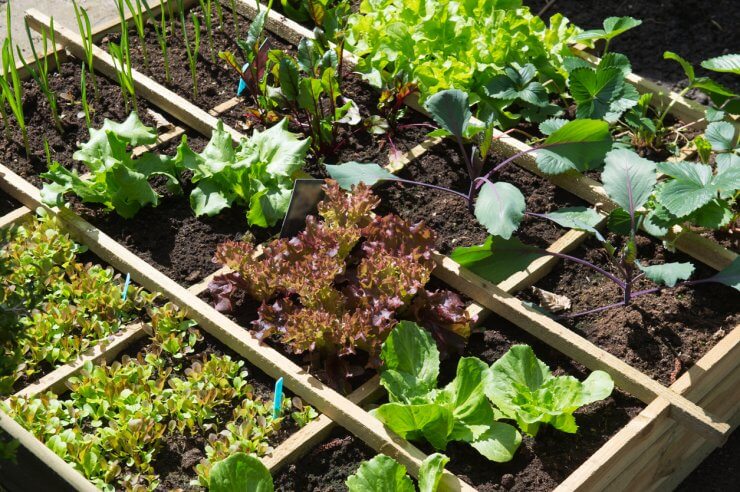
The joy of growing a kitchen garden in your yard is imagining the delicious recipes and meals you’ll create using your home-grown herbs and vegetables. Do you know what gets in the way of that joy? Bugs. Gross, invasive, plant-eating, vegetable-killing bugs! I’m looking at you, Tomato Hornworm! I’ll never forget the first time I grew a large crop of tomatoes. I would pop outside to check on my kitchen garden and see that some of my tomatoes had been chewed, and others were missing leaves or stems were completely bare. The culprit that year was the Tomato Hornworm, and it caused me to lose nearly half of my tomatoes (and my mind!). Needless to say, I hadn’t considered using plants for bug control at that point.
I’ve learned over the years, that co-planting (or companion planting) is a great way for plants to help each other grow. It’s also a great way for some plants to protect others from bugs and other pests. Here are 10 helpful plants for bug control in your kitchen garden.
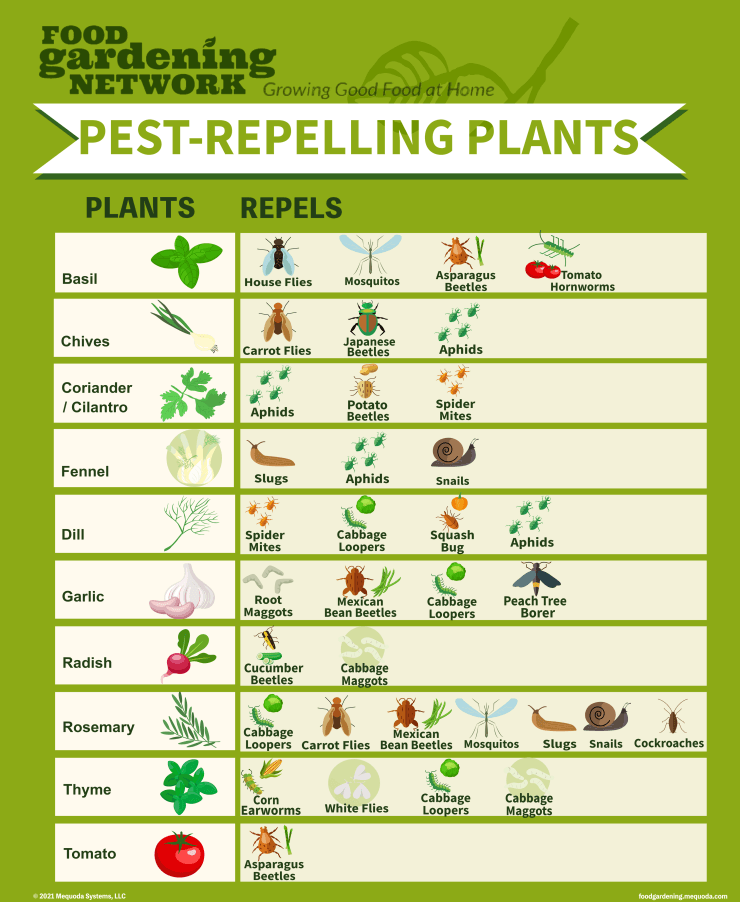
Click to download the graphic
Discover 7 top tips for growing, harvesting, and enjoying tomatoes from your home garden—when you access the FREE guide The Best Way to Grow Tomatoes, right now!
Now let’s dig into all of these beneficial plants!
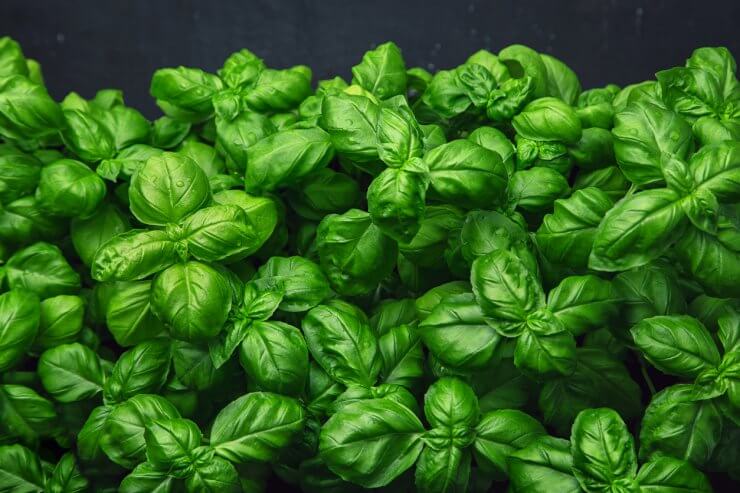
Basil
Basil is a great herb to plant near tomatoes, and really any other vegetable, because it repels house flies, mosquitos, asparagus beetle, and the tomato hornworm, just to name a few. You can even use basil to make your own insect repellent by steeping the leaves in boiling water and mixing with a bit of rubbing alcohol.

Chives
What if I told you that you could enjoy your bagel with cream cheese and chives and kick some beetle and aphid butt! Chives make it on the list of plants for bug control in your kitchen garden because they repel pesky bugs like carrot flies, Japanese beetles, and aphids.
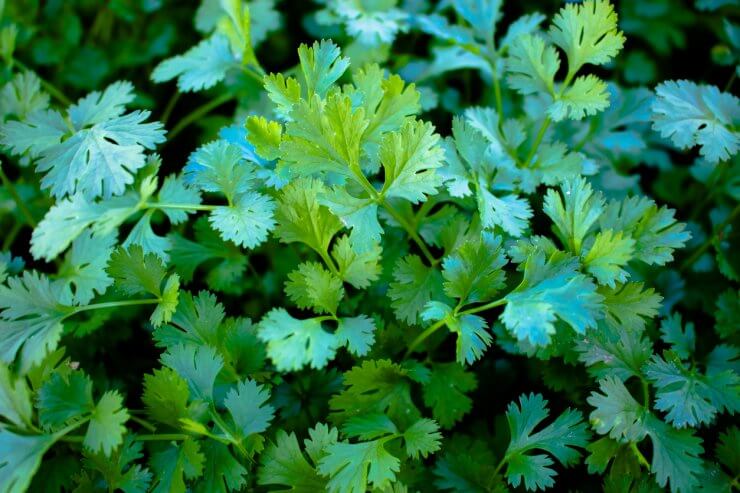
Coriander/Cilantro
You say Coriander, I say Cilantro! Either way, this plant (while sometimes polarizing in recipes) is an excellent plant for bug control. Aphids, Colorado potato beetle, and spider mites don’t stand a chance against this delicious (or soap-flavored, depending on your genes) herb.
Discover 7 top tips for growing, harvesting, and enjoying tomatoes from your home garden—when you access the FREE guide The Best Way to Grow Tomatoes, right now!
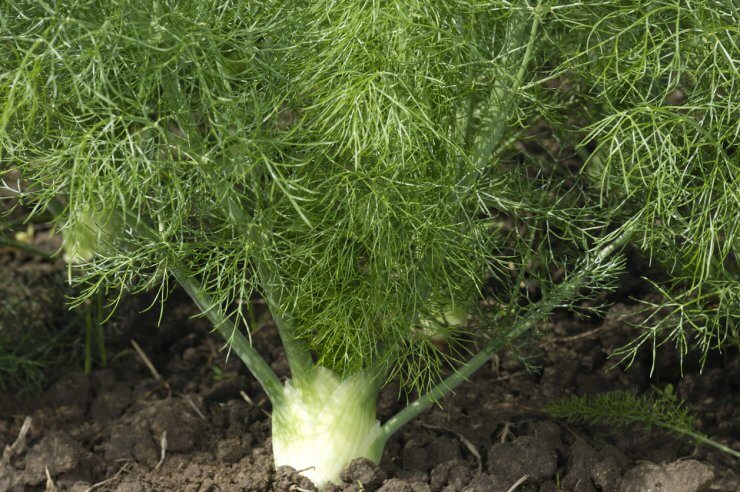
Fennel
I’ve said it once and I’ll say it again, fennel is underrated as heck! Whether eaten raw, used in a soup or roasted with cheese and breadcrumbs, this is an often-overlooked powerhouse vegetable. Planted in your kitchen garden, this licorice-scented plant becomes a deadly weapon against aphids, slugs, and snails.
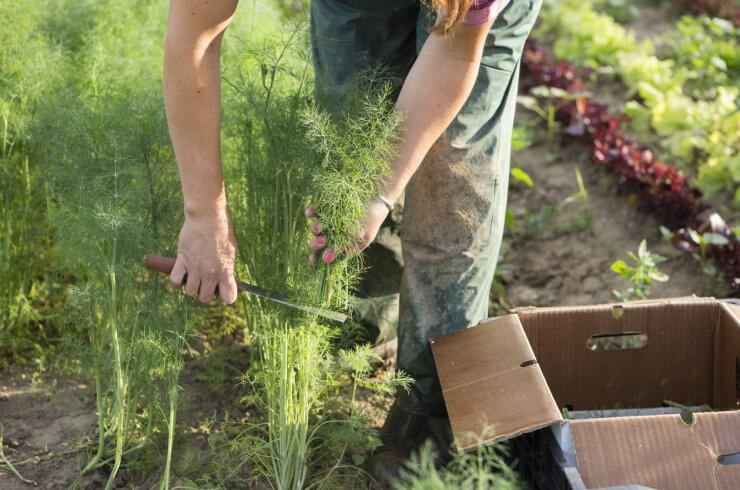
Dill
Dill is a generous herb, giving subtle flavor to everything from Grandma’s potato salad to yummy tzatziki, and don’t forget roasted potatoes. It’s a great garnish for soups and roasted vegetables, and of course, makes a great addition to pickle recipes. Planting dill in your kitchen garden will help keep aphids, squash bugs, spider mites, and cabbage loopers at bay.
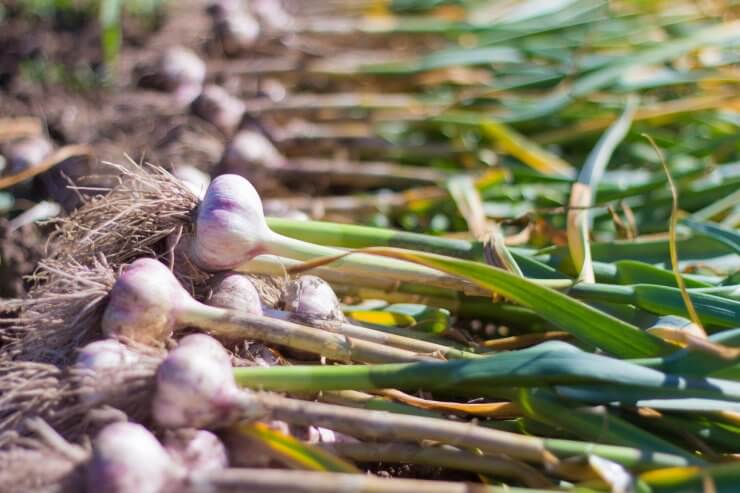
Garlic
Question: How do you repel both vampires and root maggots? Answer: Plant some garlic! Garlic is one of the great plants for bug control in your kitchen garden. Garlic is a great companion plant to broccoli, cauliflower, and kale because it will help repel root maggots, cabbage loopers, Mexican bean beetles, and peach tree borers.
Discover 7 top tips for growing, harvesting, and enjoying tomatoes from your home garden—when you access the FREE guide The Best Way to Grow Tomatoes, right now!
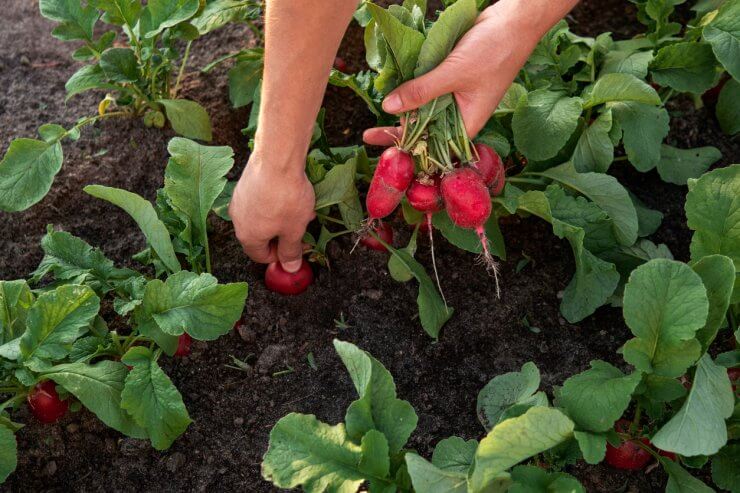
Radish
One of my favorite ways to enjoy radishes is to slice them thinly with my mandoline and add a little salt and olive oil. That’s it! I love the peppery flavor mixed with a satisfying crunch. Radishes make great kitchen garden plants since they keep cabbage maggots and cucumber beetles from invading your veggies.
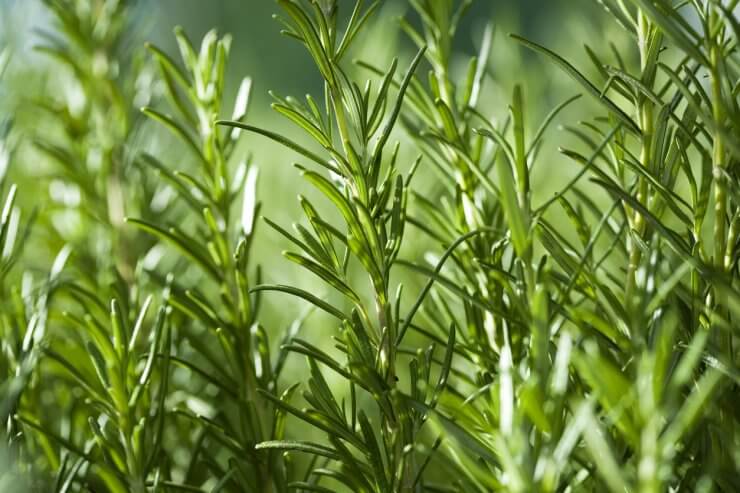
Rosemary
Rosemary has great bug repellent qualities and can be thrown into a campfire to provide some natural insect repellent while adding a lovely fragrance to the air. Used to flavor stews, chicken, and roasts, rosemary’s flavor profile is lemony pine and even a bit peppery. In your kitchen garden, rosemary is one of many powerhouse plants for bug control since it repels cabbage loopers, carrot flies, cockroaches, mosquitos, slugs, snails, and Mexican beetles.
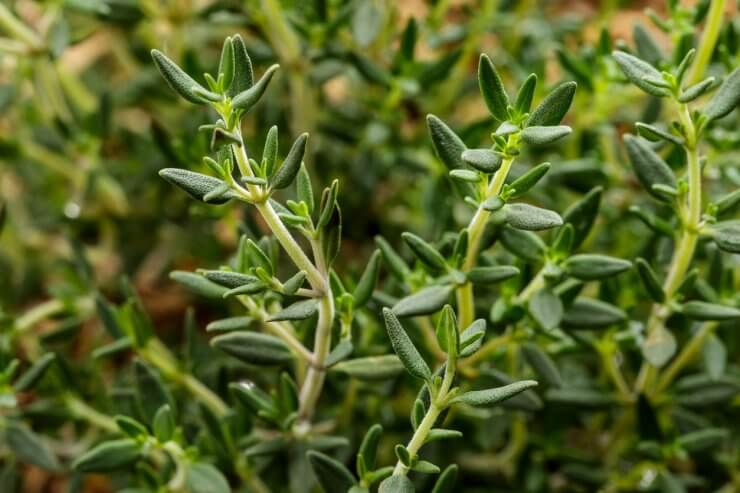
Thyme
Thyme is the quiet hero in the kitchen, with its subtle aroma and earthy flavor. It’s a great addition to Mediterranean-inspired recipes and can be added to oil and lemon juice to make a delicious marinade for chicken or pork. Planting thyme in your kitchen garden will help stave off cabbage loopers, cabbage maggots, corn earworms, whiteflies, and tomato hornworms.
Discover 7 top tips for growing, harvesting, and enjoying tomatoes from your home garden—when you access the FREE guide The Best Way to Grow Tomatoes, right now!
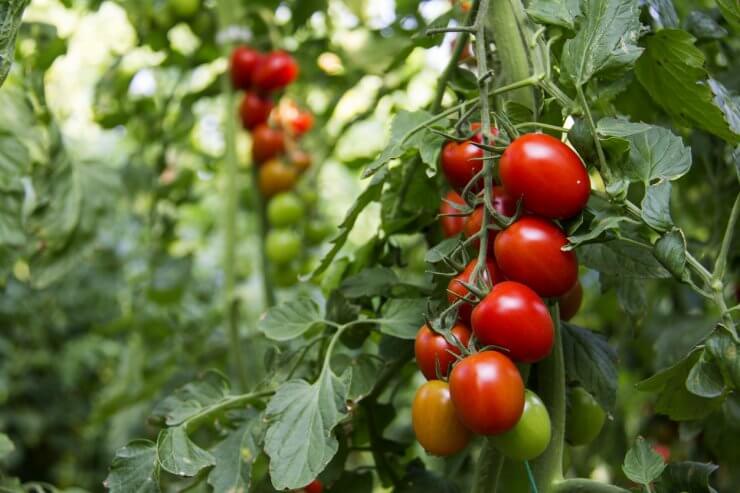
Tomato
Who could forget the great tomato hornworm saga from several paragraphs ago? It’s true, tomatoes are prone to pesky bugs and critters. But they can also help any neighboring asparagus by repelling asparagus beetles. Companion planting for the win!
What herbs and vegetables do you plant in your kitchen garden for bug control? Let me know in the comments!





Anyone have a good ant repellant that does not harm your vegtables?
I plant marigolds near all my veggies, including tomatoes. With 72 tomato plants never seen the dreaded hornworm
Marigolds do the trick for me too!
Does anyone have any tips on how to ward off fruit flies in my large chef’s kitchen by placing small (herbal/like) plants? Prefer this method to using sprays etc. (like vinegar)…….
Strong-smelling herbs like basil, mint, rosemary, and lavender can work.
an empty red wine bottle w/ just a tsp or so of wine left at the bottom- long neck
makes it hard for them to exit once caught;
there are some vinegar-based traps I’ve used (available from good gardening catalogs) that work well too!
Use a four oz plastic disposable lidded container. Put 4 or 5 holes in the lid. I use a hot ice pick to do this. Pour about 2 Tablespoons cider vinegar into the container with a drop of dish detergent (Dawn, Palmolive) and a pinch of sugar. Mix well and add the lid. Make multiple cups and place around the kitchen. It helps.
Thank you for the pointers!
Thanks,
I plant parsley, sage, rosemary, thyme, basil, dill, fennel, coriander, chives and garlic but often not all in one year. I love growing herbs and now I have even more reasons to plant them in my yard.
Thanks